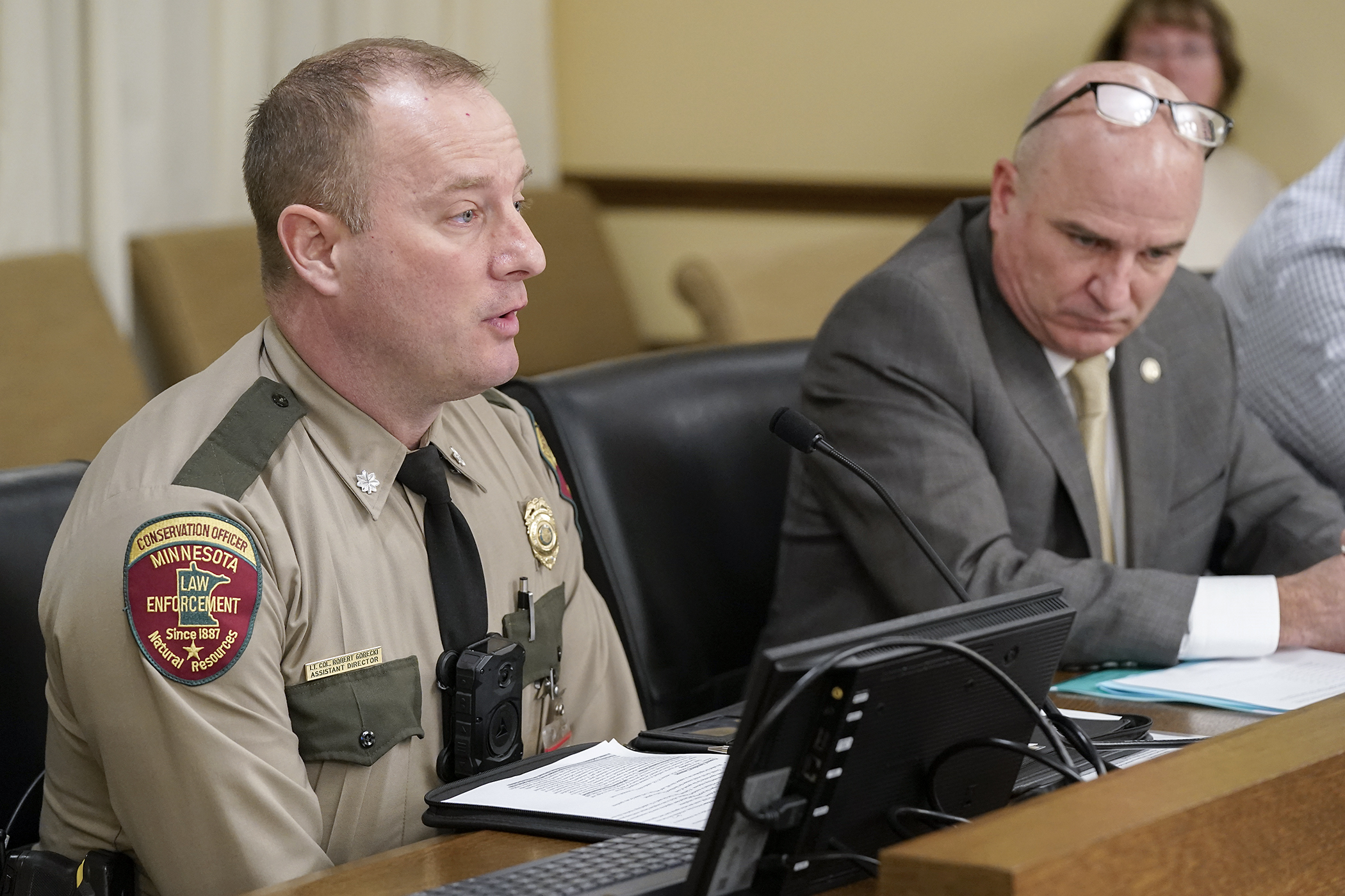Deer farmers, DNR clash over fence rules intended to curb spread of chronic wasting disease

The words “rubbing noses” do not appear anywhere in the text of HF40, but they were evoked a lot when the bill was debated by the House Agriculture Finance and Policy Committee Monday.
At issue was chronic wasting disease and whether captive, farmed white-tailed deer need to be kept at a distance from their free-range cousins to keep the disease from spreading.
Rep. John Burkel (R-Badger) is on the side of letting the wild and the farmed deer bop noses. He sponsors the bill that would eliminate a provision in a 2023 law requiring deer farmers to put up specially configured fencing to nix the nose nudging.
The Department of Natural Resources is charged with curbing the spread of CWD and has outlined several fencing options for deer farmers to comply with the law, including double fencing with 48 inches of separation, and electrified fences.
Deer farmers have struggled to meet these elaborate fencing requirements, Burkel said, and the financial burdens threaten their ability to stay in business.
“As things stand, the current statute is just unjust and frankly it’s a regulatory taking of these farmers’ livelihoods,” he said.
Besides, he said, there is no scientific evidence the disease is spread through such incidental deer-to-deer contact.
The House Agriculture Finance and Policy Committee laid the bill over for possible inclusion in a committee bill.
To curb the spread of CWD, current law requires farmed deer to be confined with perimeter fences at least 96 inches tall constructed and maintained to prevent:
- escape of farmed deer;
- entry of free-roaming deer; and
- physical contact between farmed and free-roaming deer.
The bill would remove the requirement that perimeter fences be constructed and maintained to prevent physical contact between farmed and free-roaming deer.
The DNR administers and enforces statutes and rules governing the more than 100 registered white-tailed deer farms in the state, and it strongly opposes the bill, said Lt. Col. Robert Gorecki, assistant enforcement director.
The law has been effective, and eliminating the physical separation requirement would “potentially increase the chances of transmission of CWD in both directions,” he said.
Gorecki said the DNR also objects to a provision that would remove the Board of Animal Health’s authority to revoke a farm’s registration to possess live deer and to remove or destroy the animals if a farm experiences more than one escape in a six-month period or fails to correct a deficiency found during an inspection.
“Removing the potential penalty of revocation in particular would leave little to no consequences to incentivize farmers to maintain their fences and prevent escapes,” he said.
Minnesota law on deer farming applies to all Cervidae, the scientific name for the deer, elk and moose family, although CWD has not been found in Minnesota elk or moose in decades.
Deer and elk farming associations and an active deer farmer spoke in favor of the bill.
Brenda Hartkopf, executive secretary of the Minnesota Elk Breeders Association, said deer farmers have a strong economic incentive to stop the spread of CWD, but the current fencing law is unworkable.
“Driving breeders out of business is not the solution,” she said.
Related Articles
Search Session Daily
Advanced Search OptionsPriority Dailies
Legislative leaders set 2026 committee deadlines
By Lisa Kaczke Legislative leaders on Tuesday officially set the timeline for getting bills through the committee process during the upcoming 2026 session.
Here are the three deadlines for...
Legislative leaders on Tuesday officially set the timeline for getting bills through the committee process during the upcoming 2026 session.
Here are the three deadlines for...